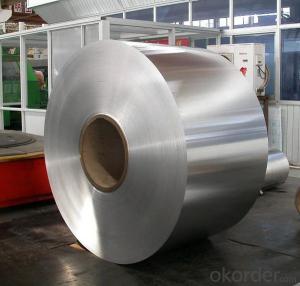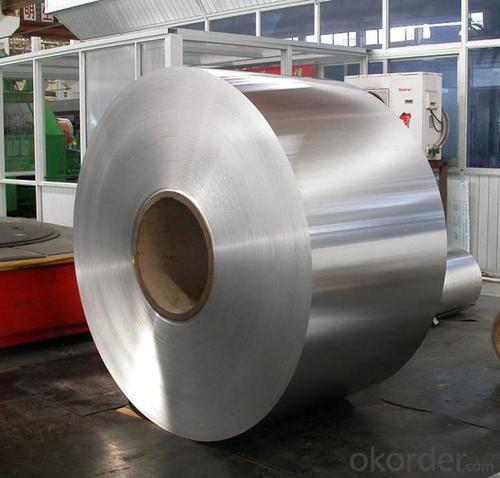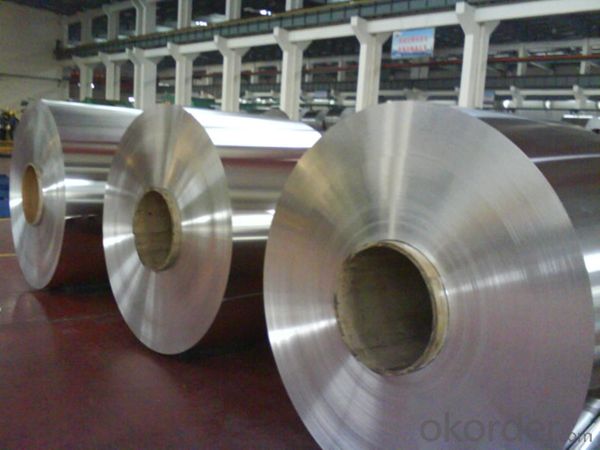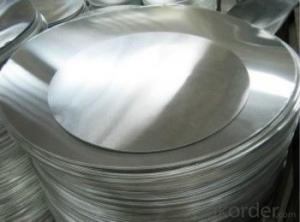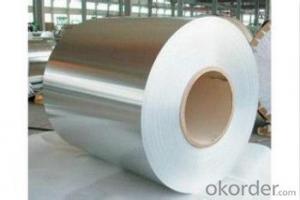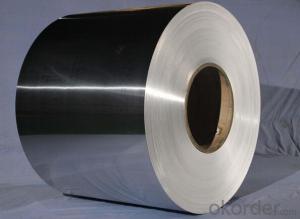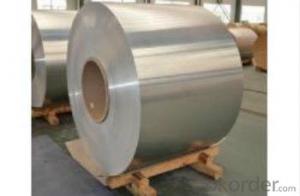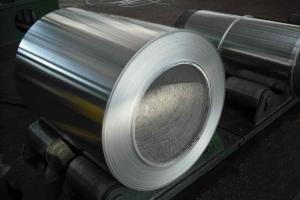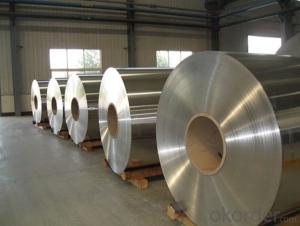3/8 Aluminum Coil AA1060 H12 Mill Finish China Supply
- Loading Port:
- Shanghai
- Payment Terms:
- TT OR LC
- Min Order Qty:
- 5 m.t.
- Supply Capability:
- 10000 m.t./month
OKorder Service Pledge
OKorder Financial Service
You Might Also Like
Specification
1. Specification of AA1060 H12 Mill Finish Aluminum Coil China Supply
Material | Alloy Aluminum 6063,6061,6005 or customer nominated |
Temper | T3, T4, T5, T6 |
Surface | Anodize, electrophoresis, powder coating, PVDF coating, wood grain painting, matted, etc. |
Colour | Any colour based on Standard Germany RAL Mark |
Length | Coating 6.5 meters, Anodizing 6.5 meters, Mill finish 5 meters |
Press Machine | 500-4000 tons all together 64 press lines. |
Fabrication | 1. Windows and doors; 2. Drilling; 3. Bending; 4. Cutting; 5. etc. |
Certificate | ISO 9001 |
Moulding | 1. Using our moulds, no fee; |
2. Using customer drawing, opening mould, usually about 10~50 tons then the moulding can be refunded. | |
3. Mould cost is negotiable base on the order quantity | |
Capability | Annual output 100,000 tons |
2. Application of AA1060 H12 Mill Finish Aluminum Coil China Supply
(1).Interior: wall cladding, ceilings, bathrooms, kitchens and balconies, shutters, doors...
(2).Exterior: wall cladding, facades, roofing, canopies, tunnels,column covers , renovations...
(3).Advertisement: display platforms, signboards, fascia, shop fronts...
3. Feature of AA1060 H12 Mill Finish Aluminum Coil China Supply
*Such coil is specially designed to replace aluminum ingot, due to the high export tax of aluminum ingot, the coil has better price than ingot.
*This type of coil can fit customer's remelting furnace just like ingot, no need to make any change to the production line that was previously used for ingot. The standard coil size and weight is very suitable for the feed gate of furnace.
*This type of coil causes less material wastage than ingot when remelted.
*Our coil is made directly from ore, no need to go though the ingot making process, quality is much better than other suppliers who use ingot scrap to make coil.
Be free from Oil Stain, Dent, Inclusion, Scratches, Stain, Oxide Dicoloration, Breaks, Corrosion, Roll Marks, Dirt Streaks and other defect which will interfere with use
4. Certificate:
SGS and ROHS(if client request, paid by client), MTC(plant provided), Certificate of Origin(FORM A, FORM E, CO), Bureau Veritas and SGS (if client request, paid by client), CIQS certificate
5. Image of AA1060 H12 Mill Finish Aluminum Coil China Supply
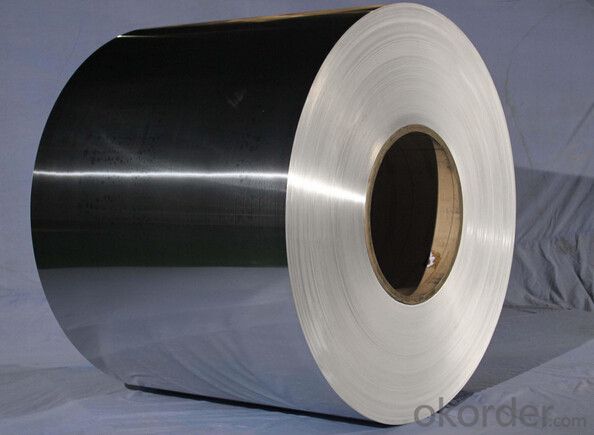
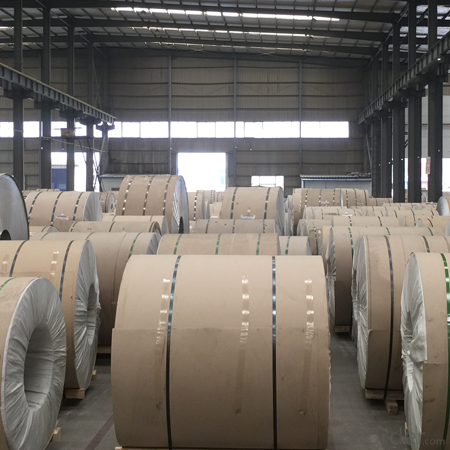
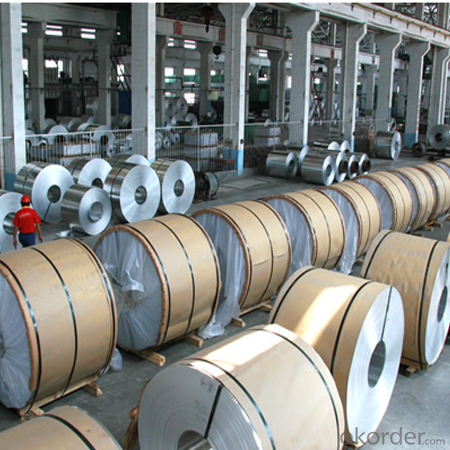
6. Package and shipping of AA1060 H12 Mill Finish Aluminum Coil China Supply
eye to wall
eye to the wall
with wood pallet (wooded case also available)
7. FAQ
1) What is the delivery time?
Dpends on actual order, around 20 to 35 days
2)What is the QC system:
We have QC staff of 20 persons and advanced equipment, each production is with MTC traced from Aluminum ingot lot.
3) What market do you mainly sell to?
Australia, America, Asia, Middle East, Western Europe, Africa etc
- Q: I am sanding tool marks out of aluminum rims and plan on polishing them. Any help to make sanding them easier would be welcome.
- Sanding aluminum is hard work . you need to start out with a 800 grit to get the tool marks out. Then to polish, you need to strip all of the paint (if any ) off. I recommend using a 1000 grit wet sand paper in a single direction, back and forth, not circles. I also recommend using Mothers aluminum mag wheel polish (works on any polishable metal) at the same time. again it is hard work, lots of elbow grease! But it does pay off as it looks better than chrome, I also dont reccomend using power tools as you might end up taking to much off of a surface causing a wavy apperance, after a 1000 grit you could go up to 1200 grit for a mirror finish!
- Q: How are aluminum coils coated for color matching and aesthetic purposes?
- Aluminum coils are coated for color matching and aesthetic purposes through a process called coil coating. During this process, a layer of paint or coating material is applied to the aluminum coil. The coil is first cleaned and treated to ensure proper adhesion of the coating. Then, a primer is applied to improve corrosion resistance. Finally, a topcoat is added to achieve the desired color and aesthetics. This process ensures that the aluminum coils have a consistent color and finish, making them suitable for various applications such as building facades, automotive parts, and appliances.
- Q: Can aluminum coils be used in high-radiation environments?
- Depending on the level of radiation exposure, the performance and durability of aluminum coils may be affected when used in high-radiation environments. Aluminum, which is a relatively good conductor of heat and electricity, is suitable for various applications, including coil systems. However, exposure to high levels of radiation can make aluminum more susceptible to degradation and corrosion. In high-radiation environments, the main concern is the potential damage caused by radiation. Compared to metals like stainless steel or titanium, aluminum has relatively low radiation resistance. This means that prolonged exposure to high radiation levels can result in structural changes, such as embrittlement and loss of mechanical properties. To mitigate these risks, several factors must be taken into account. The specific radiation level, duration of exposure, and intended use of the aluminum coils are critical in determining their suitability for high-radiation environments. Additionally, applying protective coatings or treatments can enhance the radiation resistance of the aluminum coils, improving their durability and lifespan. Ultimately, the decision to use aluminum coils in high-radiation environments should be based on a thorough assessment of radiation levels, potential risks, and specific application requirements. It may be necessary to consult radiation experts and consider alternative materials to ensure optimal performance and safety in these demanding conditions.
- Q: Are there any restrictions on the coil flatness of aluminum coils?
- Yes, there are restrictions on the coil flatness of aluminum coils. The industry standards specify acceptable tolerances for coil flatness to ensure the quality and usability of the aluminum coils. These restrictions help prevent any deformation or irregularities in the coils, ensuring they meet the required specifications for various applications.
- Q: What are the best rust-proof coils? Please tell me the model and manufacturer in Shangdong. Thank you.
- 3003 aluminum coil, AL-Mn series alloy, is the most widely used rust-proof aluminum with the density being 2.73. It is applicable to insulation projects such as pipe insulation, packaging, machine parts, refrigerator, air conditioning and ventilation pipes and other wet environment.
- Q: How are aluminum coils priced?
- Aluminum coils are priced based on a variety of factors including the current market price of aluminum, the size and thickness of the coils, the quantity being purchased, and any additional customization or processing requirements. The market price of aluminum is influenced by factors such as supply and demand, global economic conditions, and trade policies. The size and thickness of the coils can affect the cost as larger or thicker coils generally require more raw materials and production time. The quantity being purchased can also impact the price, as larger orders may receive volume discounts. Additionally, if the coils require any additional customization or processing, such as coating or shaping, this can also impact the overall price. Overall, the pricing of aluminum coils is a complex process that takes into consideration various factors affecting the cost of production and market conditions.
- Q: Is it possible to utilize aluminum coils in the construction of solar panels or wind turbines?
- <p>Aluminum coils can be used in the construction of both solar panels and wind turbines, but not as the primary material for energy conversion. In solar panels, aluminum is often used for framing and mounting structures due to its lightweight and corrosion-resistant properties. For wind turbines, aluminum is utilized in the manufacturing of certain components such as nacelle shells and towers, but the main rotor blades are typically made from composite materials for their strength and aerodynamic properties. Thus, while aluminum plays a supportive role in these renewable energy technologies, it is not the core material for capturing solar or wind energy.</p>
- Q: How are aluminum coils used in insulation applications?
- Aluminum coils are commonly used in insulation applications due to their excellent thermal conductivity and durability. They are typically used as a component of HVAC systems, where they are used to transfer heat between the air and the refrigerant in order to control the temperature of a space. In insulation applications, aluminum coils are often used in the production of air conditioning units, heat pumps, and refrigeration systems. These coils are designed to efficiently transfer heat, allowing for the effective cooling or heating of a space. The coils are typically made of aluminum due to its high thermal conductivity, which enables the efficient transfer of heat. Additionally, aluminum is lightweight and corrosion-resistant, making it a suitable choice for applications that require durability and longevity. Aluminum coils are commonly used in conjunction with other insulation materials such as foam or fiberglass to create a thermal barrier. This combination helps to minimize heat transfer between the inside and outside of a building, reducing energy consumption and improving overall energy efficiency. Furthermore, aluminum coils can be easily formed into various shapes and sizes, allowing for customization and flexibility in insulation applications. This versatility makes them suitable for a wide range of insulation needs, from residential to commercial and industrial settings. In summary, aluminum coils play a crucial role in insulation applications by efficiently transferring heat and contributing to energy efficiency. Their thermal conductivity, durability, and versatility make them an ideal choice for various insulation needs, helping to create comfortable and energy-efficient environments.
- Q: Can aluminum coils be customized?
- Yes, aluminum coils can be customized according to specific requirements. Aluminum coils are highly versatile and can be customized in terms of thickness, width, length, alloy composition, surface finish, and other specifications. This allows for a wide range of applications in various industries such as construction, automotive, aerospace, electronics, and packaging. Customization of aluminum coils can be done through processes like slitting, cutting-to-length, embossing, painting, and coating. This flexibility in customization enables manufacturers to meet the unique needs of their customers and ensures that the aluminum coils are optimized for their intended use.
- Q: Is it possible to use aluminum coil for crafting decorative items?
- <p>Yes, you can use aluminum coil to make a decoration piece. Aluminum is a versatile material that is lightweight, durable, and easy to manipulate. It can be bent, twisted, or cut into various shapes to create unique decorative items. Common uses include making sculptures, wall art, and even jewelry. Due to its malleability and resistance to corrosion, aluminum coil is an excellent choice for decorative purposes, especially for outdoor decorations where weather resistance is important.</p>
Send your message to us
3/8 Aluminum Coil AA1060 H12 Mill Finish China Supply
- Loading Port:
- Shanghai
- Payment Terms:
- TT OR LC
- Min Order Qty:
- 5 m.t.
- Supply Capability:
- 10000 m.t./month
OKorder Service Pledge
OKorder Financial Service
Similar products
Hot products
Hot Searches
Related keywords
